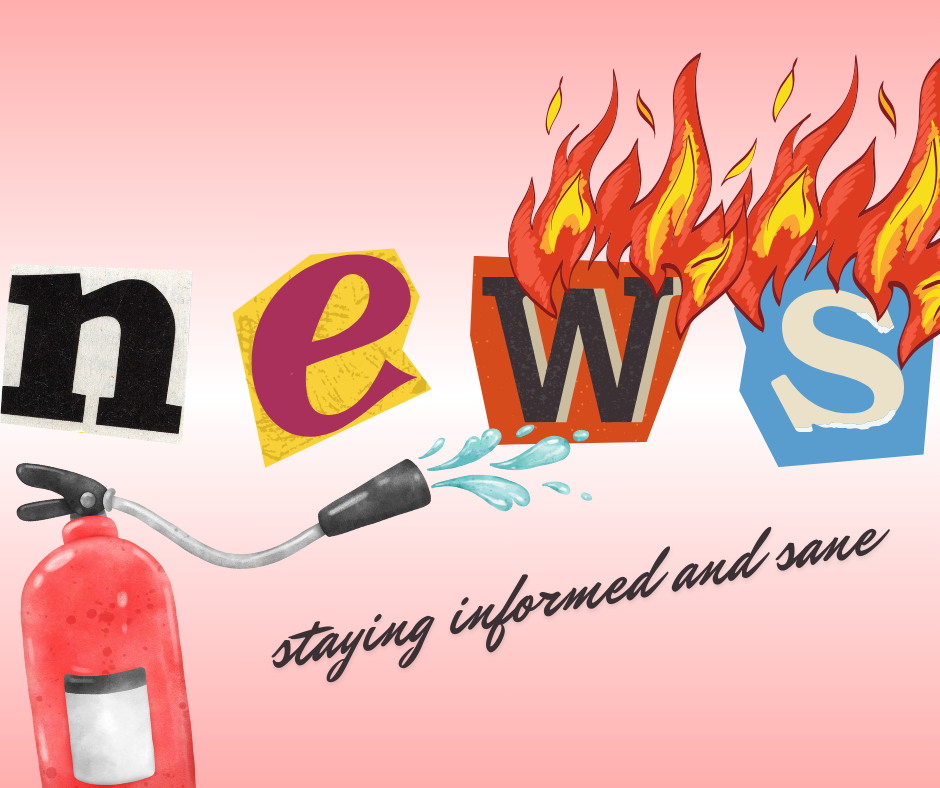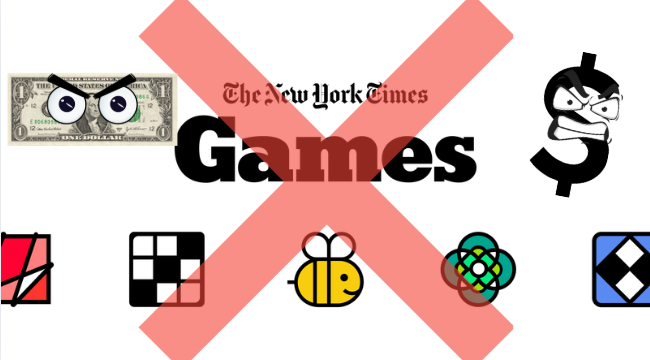I’m trapped in a sweltering forest fire. I look at what used to be my home, now enthralled in flames, soot, and ash. I turn my gaze and I am suddenly within a war zone. Men, women, and children shelter their heads while governments trade devastating fire. I look over my shoulder. I am now on the Senate floor. I watch in horror as politicians exchange language fit for an elementary school sandbox. I turn my gaze again. I am back in my room at home. My heart is racing and I feel a dreadful pit in my stomach that wasn’t there before. I look back down at my phone, a black rectangular nightmare, and I finally exit out of my news app.
I love the news. I love it so much that I’m majoring in journalism in college. Reading various news articles not only hones my craft but also satisfies my interest in global politics and international affairs. Recently, however, I’ve noticed that my news-reading habit is harvesting more rotten than ripe fruit. Instead of noticing a playful word choice, my heart drops when I read a headline. I stop reading articles halfway through, unable to stomach the rest of the piece. This is because, well, the news lately is frankly awful. The top issues in my hopeless news circulation include rising global temperatures, the physical and emotional devastation of war, and, to put it simply, politics.
“When the news mentions things that are happening, I get really sad,” junior Livvy Altemeier said. “I try not to think about it too much. So I don’t really look at the news and think about all the things that are happening in the world because it affects my mental health a lot.”
Reading the news now has the potential to ruin my entire day and even affect my effort and focus at school. I’ve lately been struggling to find a balance between staying informed and leaning into my passion for politics, yet also staying happy and mentally well. Upon chatting with my friends, family, and mental health professionals, it seems pretty universal that looking at the news these days evokes a less-than-positive reaction. However, as a student journalist and politics junkie, I’ve been able to collect various coping strategies, mindsets, and mantras to get myself back on track when the news knocks me down.
My first suggestion is to be intentional with your news intake, infusing mindfulness into your news-checking habits. For me, this meant muting my news app. No, I don’t live in naive oblivion. I still read the news. A lot. But now, instead of my news app bombarding me with notifications at any hour of the day, I choose precisely when to inform myself. With this switch, I am empowered. I am able to take a second to mentally prepare myself for what I may see, rather than forcefully receiving information I’m not fully ready for.
My next suggestions involve mindset shifts. While these are more difficult to implement than physical steps like turning off notifications, I find the benefits I reap from them are profoundly impactful. Firstly, having positive prospects has helped me astronomically. Instead of just sitting in unexplainable grief about the state of our world, I sit in grief and also remember that I’m hanging out with my friends this weekend. I feel dread and also remember that ice chai tea lattes with pumpkin cream exist. I feel helpless and remember that I will be going to my dream college in less than a year’s time. No, I do not deny myself feelings of sadness, hence my repeated use of ‘and’. Feeling your sadness is an important step in processing emotions. Do not shy away from it. I feel my grief and I remind myself of exciting things that are happening or will happen.
My last tip: act. Reading horrifying headlines lends itself to the tendency to paralyze one’s social action. Especially scary ones make us as individuals feel small; too small to do anything. This is where you must fight that urge to lay dormant. Activism doesn’t solely mean taking to the streets. It can mean that, but that isn’t the only way to act. My chosen act is my pen. Or, my keyboard I guess. Whether this be a fiery opinion article criticizing government policies, or an article raising awareness on various student struggles, journalism is my ‘act’. Your act could involve donating money to a cause you care about, signing petitions, or speaking to your representatives about what matters to you.
Feeling as though you’ve done something, no matter how small it may be, is extremely effective in keeping long-term political dread at bay. While we cannot control the world’s events, it is empowering to internalize that we can control how we take them in, process and react to them, and ultimately, act on them.










Ms. Amelianovich • Feb 27, 2025 at 1:11 pm
So well done. Excellent piece, Ruby!